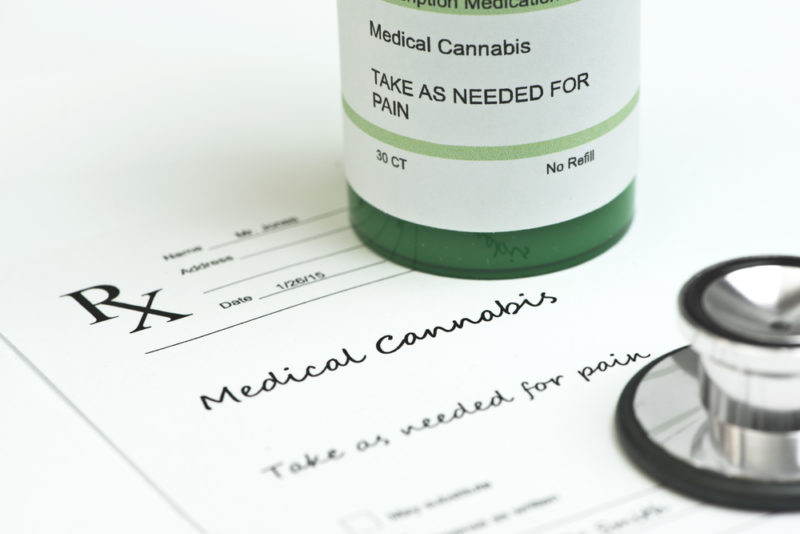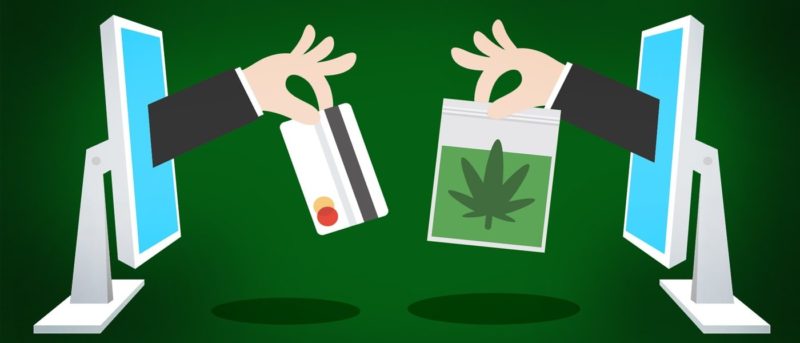It’s easy to focus on the negative aspects of COVID-19 — the disease and death, the economic downturn — but there are a few positive effects of the ongoing pandemic. For one, despite some limited hoarding behaviors, most people are working together to get through this tough time, donating more money and supplies to those in need than they did before the new coronavirus swept the nation.
For another, it seems that the American government is finally starting to respect marijuana as a legitimate medical treatment and protect and even expand access to it. If you are wondering how, exactly, attitudes and regulations regarding cannabis have changed in just a few weeks, read on.
Everywhere, Medical Marijuana Is Deemed “Essential”

Most states have issued variations on stay-at-home orders, which require residents to avoid leaving their homes unless they have essential business to take care of. Essential business is largely what you would expect: the jobs that keep society at its base-level of functionality, like food production and sales, emergency and first responders, health and human services, etc. However, it now also includes producing, distributing and purchasing medical marijuana.
Though the battle has been hard-fought, most people are finally beginning to respect marijuana as a legitimate medical treatment. Especially for conditions that otherwise lack a widely applicable treatment option, marijuana helps patients find comfort and wellness — and it isn’t a treatment that most patients can quickly or safely eschew for weeks or months. Whether a patient partakes in medical marijuana for chronic pain, chronic anxiety, neurological disorders or something else, they inarguably need access to the drug that keeps them functioning and content.
All places that permit medical marijuana have deemed the service essential, thus protecting patients’ rights to all the medical treatments they need. Even better, many of the states where recreational marijuana has been legalized have determined that everyone should and must have access to the drug, just as access to beer, wine and liquor has largely been protected during this time.
Still, recreational and medical marijuana dispensaries will need to conform to various precautions required even at essential businesses. Both employees and customers must be kept safe; you will probably see budtenders wearing more PPE, like gloves and masks, and you might be asked to maintain a distance between you and other customers during your visit. It might also be wise for you to don a homemade mask of your own, to prevent unintended transmission between you and fellow dispensary customers. This is a small price to pay for continued access to a real and vital medical treatment.
Some States Are Making It Easier to Get Medical Marijuana Prescriptions

As you might know, the primary concern with COVID-19 isn’t necessarily the large numbers of infected people — it is the possibility for the disease to overwhelm hospitals and health centers. Thus, most doctors and clinics are asking that everyone postpone unnecessary visits and elective treatments to lighten the load on the health care industry and help everyone better endure in the height of the pandemic. With all hands on deck trying to manage this new and poorly understood disease, few healthcare professionals have time or energy for routine health concerns.
Unfortunately, many medical marijuana patients have long been required to obtain marijuana recommendations from a doctor, in-person; even prescription refills must come directly from a qualified health care professional — until now. In some states, like New Jersey, the government is loosening regulations to allow patients to seek not only prescription refills but new prescriptions and even cards via telemedicine.
Telemedicine, also called telehealth, e-medicine or e-health, is using communication technologies like instant messaging or video chat to connect patients with health care professionals. Telemedicine isn’t a new concept, but it has rapidly gained traction in recent years as more people have access to and proficiency with technology. Thanks to loosened regulations in the midst of the pandemic, sufferers of qualified diseases can use the web to discuss marijuana prescription options with their doctors. This keeps high-risk medical marijuana patients in their homes, away from the spreading disease, and it also keeps people out of health care centers that are already feeling the weight of COVID-19 diagnoses.
Other States Are Changing How You Can Buy Cannabis Products

Because marijuana is only newly available, states have maintained strict rules about where and how you can buy marijuana products. Especially because legal weed is highly taxed, state governments are even more interested than previously in eliminating black market marijuana deals, and controlling where adults can make purchases allows authorities to better identify and eliminate illegal activity. For example, many states have long prohibited online marijuana orders, and delivery of cannabis products to private residences was once expressly forbidden — but not anymore.
In an effort to keep as many people as possible distant from the disease, some states are changing marijuana regulations regarding how marijuana can be purchased. For more details, Click here. For example, in Illinois, marijuana must be exchanged on dispensary grounds, but it can take the form of a curbside pickup to ensure at-risk patients stay distant from potential sources of infection. Other states are even permitting home delivery of marijuana goods, especially for at-risk medical marijuana patients. What’s more, the possession limits for medical marijuana users have been raised considerably, with patients encouraged to stock up on at least 90 days’-worth of marijuana at a time. This is similar to recommendations of stores for other essential goods, like other prescription medications, cleaning products and non-perishable foods.
It’s uncertain which, if any, of these regulations will continue once the pandemic passes, but for now, these vastly expanded rules regarding medical marijuana should be considered major wins for the cannabis community. With luck — and tireless work from marijuana advocates — these regulations will persist even after the threat of the new coronavirus fades, and cannabis enthusiasts across the country will enjoy these conveniences into the future. Now that many states have made legal marijuana access a right, it is imperative that we work to protect that right, even in times of crisis.












